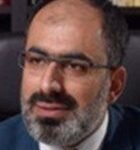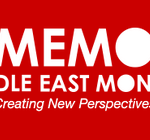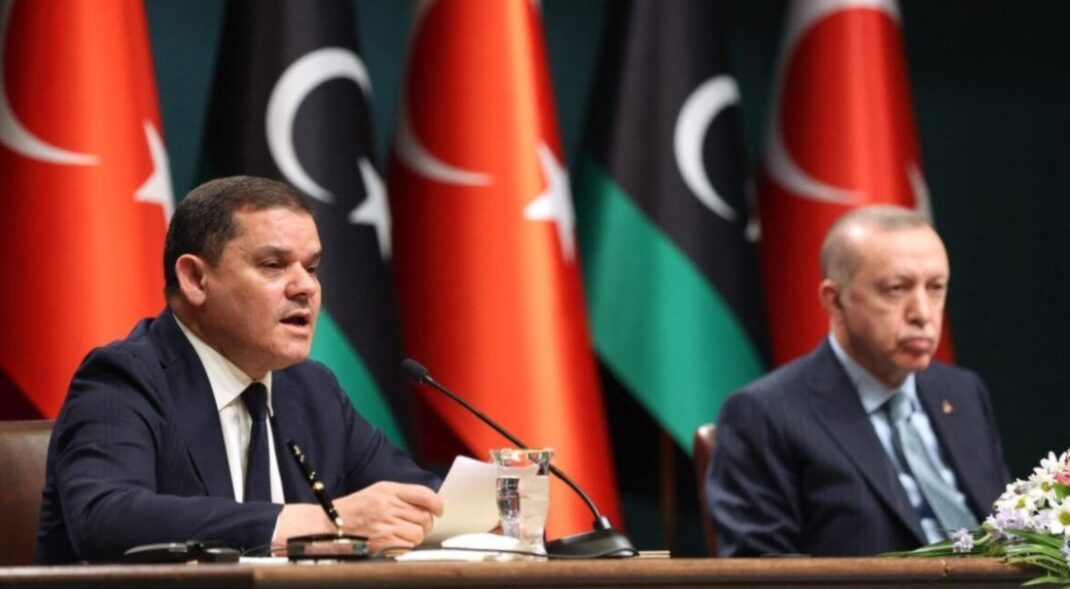Turan Kislakci
 Libyan Prime Minister Abdul Hamid Dbeibeh visited Ankara last week with a large delegation including five deputy prime ministers, 14 ministers, and the chief of staff to participate in the first meeting of the Turkey-Libya Strategic Cooperation Council.
Libyan Prime Minister Abdul Hamid Dbeibeh visited Ankara last week with a large delegation including five deputy prime ministers, 14 ministers, and the chief of staff to participate in the first meeting of the Turkey-Libya Strategic Cooperation Council.
Dbeibeh is keen to pursue a balanced foreign policy, even though he communicates with all of the governments that have had a role in destabilising his country over the past few years while giving special importance to Turkey, which has helped to bring some degree of stability to Libya thanks to the 2019 maritime border and other agreements.
As prime minister for just a couple of months, Dbeibeh is well aware that excluding Turkey militarily from the Libyan equation will jeopardise the political future of his country. He is also closely following renegade Field Marshal Khalifa Haftar’s plan to build three huge housing projects for 12 million people on the outskirts of Benghazi.
In the middle of all this, Italy and France are trying to lead the reconstruction process in Libya, while Greece is seeking to persuade the Libyans to cancel the memorandum of understanding concluded with Turkey which demarcates the maritime border in the eastern Mediterranean.
Egypt, meanwhile, is busy wooing Tunisia in order to limit Turkey’s influence in the region. It is noticeable that competition between Egypt and Turkey looks as if it is going to continue in Libyan affairs, despite the convergence between them about dividing areas of authority in the eastern Mediterranean.
For example, Cairo is trying to get Tunisia worried about the Turkish presence at Al-Watiya Air Base in western Libya. It seems that ongoing tension between Ankara and Cairo stands alongside a recent improvement in their relations.
A large number of actors in Libyan affairs are trying to exclude Turkey from the equation. Dbeibeh, who is a well-known businessman, seeks to establish a balance based on the principle of mutual benefit for all parties.
If he succeeds, he will have the opportunity to take part in the General Election scheduled for December and possibly govern Libya for a long time.
There is no doubt that Ankara enjoys an indispensable and strategic importance in the balanced policy that the prime minister seeks due, no doubt, to its historic ties with Libya.
Moreover, Turkey can provide assistance in rebuilding the North African country devastated by 10 years of war, and in ensuring that it can resume its role in the international community.
Libya is well-placed geographically on the traditional route from the Middle East across North Africa to the west of the continent, and from Africa to Europe. It was also part of the Ottoman Empire for 400 years. Its importance increased in 1959 with the discovery of high-quality oil fields.
Turkey, therefore, is certain to continue its support for the Tripoli government formed through the 2015 Libyan Political Agreement and recognised by the United Nations as the legitimate authority in the country.
Ankara believes that Libya can shed its current difficulties through negotiations with all concerned parties, with the ultimate objective of being politically, economically, and socially stable.
War or peace in the Mediterranean?
There are hundreds of warships in the Mediterranean, which is currently witnessing the largest gathering of warships since WWII.
Political, economic, social, cultural, military and technological changes are also continuing at a rapid pace in a world that has suffered from the pain of the new order after the Cold War.
At the beginning of the 21st century, the Eastern Mediterranean hydrocarbon reserves were discovered, a fact nobody could have predicted a quarter of a century ago. It is estimated that natural gas reserves amount to $3 trillion, and it is able to meet Turkey’s needs for about 572 years, and Europe for about 30 years, according to the current consumption.
In his book, “Libya, Turkey’s Neighbour from the Sea“, Major General Jihad Yayji says that the political influence of this volume of reserves, along with its economic value, has made the area a new centre of attraction.
The increased efforts of the countries of the region in recent years, and the increasing activities of non-regional forces towards the eastern Mediterranean, are a confirmation of this situation. Dozens of countries today, including global and regional actors, conduct activities in the Eeastern Mediterranean.
The increased activity of non-Mediterranean countries in the Eastern Mediterranean illustrates very clearly the extent of sensitivity in the region. This situation has made the security environment in the Eastern Mediterranean more complex.
As with the rest of the Mediterranean countries, Turkey is following developments in the Eastern Mediterranean with political and military alertness and precaution, while it continues to legally defend its rights and interests in the Eastern Mediterranean for future generations.
The actual situation in the Mediterranean is one of the main causes of the wars, chaos, and continuing turmoil in Syria, Libya, Lebanon and Palestine.
On the other hand, problems on land, such as illegal immigration and terrorism, have been destabilising maritime areas in the eastern Mediterranean for decades.
We must not forget that the military coup against Mohamed Morsi, the first elected president in Egypt, was also due to the Mediterranean and the Suez Canal, because Morsi’s projects to ensure the provision of the necessary capabilities for Egypt’s self-reliance, from the Suez Canal and the Mediterranean, had deeply angered Israel.
The discovery of one of the world’s largest natural gas reserves in the Eastern Mediterranean in 2000 doubled the geopolitical and geo-economic status of the Mediterranean. With these developments, it becomes very clear that the Mediterranean will play a very important role in shaping the new world order.
In particular, Israel, Greece and other Western countries continue to engage in all kinds of illegal activities to keep Muslim countries out of the Eastern Mediterranean, amid their uneasiness over the standing that Turkey and the Arab countries will gain from their rights in the Mediterranean.
In his book “Histoires de la mer“, French writer, politician and economist Jacques Attali, lists future scenarios in the Mediterranean, as follows: “Maritime terrorism may appear in the future as a new form of war. It can be imagined that this war will take many forms: such as the use of submarines and drones, sending suicide ships or hostage-laden ships towards cruise ships or ports, sending ships loaded with explosives or migrants to the Mediterranean or cutting some of the most important marine cables.“
Will the Mediterranean be a place for war or for reunification in the future? Philosophers who say that the Mediterranean is a place where ordinary people live in peace, stress that there is an understanding of life in the Mediterranean based on living, cultural exchange, rapprochement, and mutual concessions.
In light of this, will it be possible to reinterpret the Mediterranean Sea with its new structure in the 21st century through the concept of “Mediterranean thinking” according to the expression of French sociologist and philosopher Edgar Morin? Of course, this will become clearer over time.
__________





